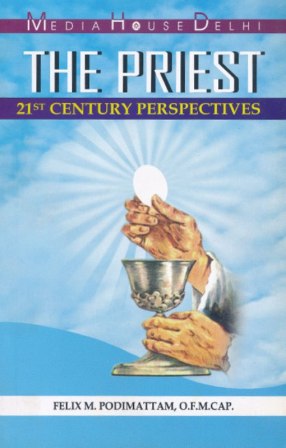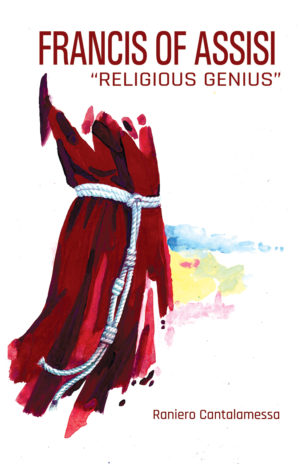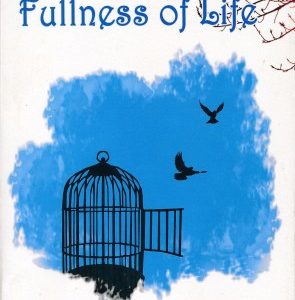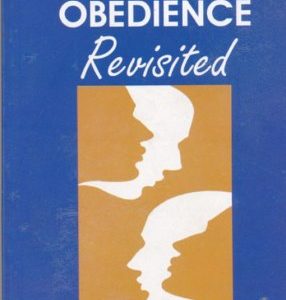Description
Dr. Felix Podimattom is one of the best-known moral theologians in India and outside. Besides his full time job as a professor, he finds time to write books at an amazing rate. He has authored 77 books. Besides his Master’s degree in Political Science from the University of Mysore, he holds a Licentiate in Theology from the Pontifical Gregorian University, Rome, and subsequently a Doctorate in Moral Theology from the Alphosian Academy, Rome, His post-doctoral studies were pursued in Washington, DC, U.S.A. At Present he is professor of moral theology at St. Francis Theological College, Kottayam, Kerala.
modern society limited the vision of priesthood to be a social worker, psychologist or counselor or simply administrator of sacraments rather than a Christ centred prayer based leadership identity. The absence of contemplative prayer has become universal among the time constrained duty bound overburdened priests. The book analyses the spiritual, emotional, ministerial life of a priest and how fulfillment of love can be had from a celibate life. The focus of spirituality need to change from performance to experience that is a qualitative improvement capable of enlivening community around. Priestly life is not a sprint to exhaust energy by overwork but a marathon where one should keep a harmonious balance of prayer and contemplative action.
The celibate life of a priest should not be a barren bachelorhood but a rich experience of fullness of love of Christ. A priest needs to grow to be an enlightened mystic guide with the fire of the Spirit leading the community around him to that experience.
INTRODUCTION
CHAPTER-1
IDENTITY OF THE PRIEST
1. The Priest as a Man Called to Unique Relationship with God
2. The Priest as Person of Prayer
3. The Priest as the Intercessor
4. The Priest as the Centre of Unity in the Christian Community
5. The Priest as Another Christ
CHAPTER-2
SPIRITUAL LIFE OF THE PRIEST
1. Priests and Prayer Life
2. The Danger of Activism
2.1. Need of Silence 70
2.2. Regular Contemplative Prayer as the Surest Sign of Love of God
2.3. Contemplatives in Action: Who Are They?
2.4. To Work is to Pray? ‘
2.5. The Danger of Overwork
2.6. Must We Die at Our Work?
2.7. Fate of Over-Active Priests
CHAPTER-3.
EMOTIONAL LIFE OF THE PRIEST
1. Priests and Happiness
2. Fulfilment in Celibate Life
3. The Priest and His Mental Health
4. The Priest and His Emotional Life
4.1. Theology of Erotic Attraction
4.1.1. Erotic Love as Agape
4.1.2. Eros as a Spiritual Drive
4.1.3. The Divine Dimension of Eros
4.1.4. Erotic Love Overcomes the Sexual Passion
4.2. God and Nature are not Incompatible
4.3. Celibacy is Not Asexual Existence
4.4. Celibacy Has Nothing to Do with Denial of Human Affection
4.5. Celibacy is Not Rejection of Woman
4.6. Celibacy and Possession of Fullness of Masculinity
4.7. Human Soul and the Basic Longing for Human Intimacy
4.8. Difference between Conjugal Friendship and Celibate Friendship
4.9. Rich Possibilities of Collaboration between Priests and Consecrated Women
4.10.Pastoral Reflections
CHAPTER-4
MINISTERIAL LIFE OF THE PRIEST
1. Priests and Work
2. Vital Importance of Priestly Ministry
3. Ministry of Servant-Leader
4. Ministry of Presiding over the Eucharist
5. Ministry of Teaching
CHAPTER-5
CELIBACY OF THE PRIEST
1. Nature of Clerical Celibacy
1.1. The Feasibility of Celibacy
1.2. Celibacy as Existential Inability to Marry
1.3. Celibacy as a State of Special Bridehood of God
1.4. Celibacy as a State of Spiritual Parenthood
1.5. Celibacy as a Way of Sexual Fulfilment
1.5.1. Distinction between Generic Sexuality and Genital Sexuality 292
1.6. Celibacy and Physical Integrity
2. Preeminence of Clerical Celibacy
2.1. Preliminary Considerations
2.2. Inadequate Reasons for the Preeminence of Celibacy
2.2.1.”Both Jesus and Mary Were Virgins” Argument
2.2.2.”The Direct Approach to God” Argument
2.2.3.”Avoidance of the Snares of Sex” Argument
2.2.4.”Celibacy is a State of Perfect Chastity” Argument
2.2.5.”Celibacy’s Greater Degree of Merit” Argument
2.2.6.”Celibacy Elevates the Person above the Material Order” Argument
2.2.7.”Celibacy Exchanges Natural Fecundity for the Supernatural” Argument
2.2.8.”Celibacy is More Difficult than Married Life” Argument
2.2.9.”Celibacy Frees Us to Devote More Fully to Our Work”Argument
2.4.3. Celibacy is Not Harmful
2.4.4. Celibacy is Not Anti-Social
2.4.5. Celibacy and Its Non-Sacramentality
2.4.6. Celibacy and the Scandals of Celibates
3. Pastoral Aspects of Clerical Celibacy
3.1. Can the Church by Law Impose Celibacy on Priests?
3.2. Is Optional Celibacy the Answer?
3.3. Can’t Married Men be Permitted to Receive Priestly Ordination?
3.4. What about Those Priests Who Had No Initial Call to Celibacy
CONCLUSION
END NOTES
BIBLIOGRAPHY
INDEX




Reviews
There are no reviews yet.